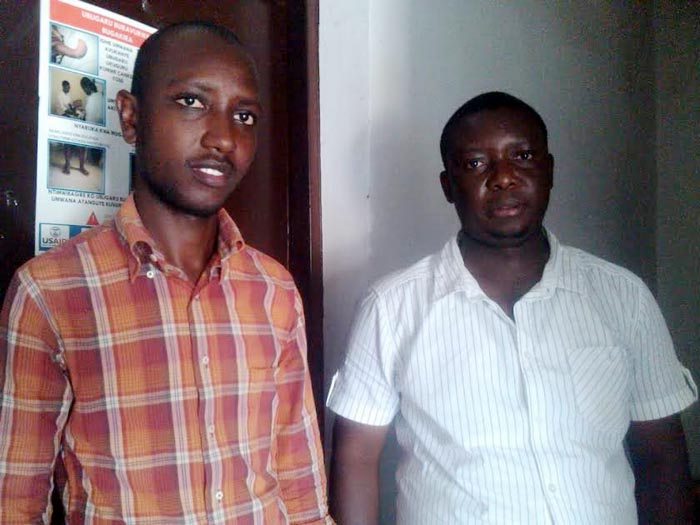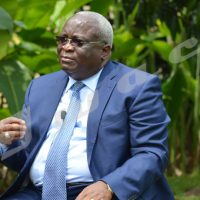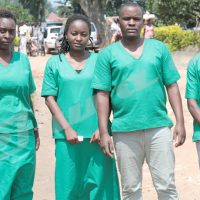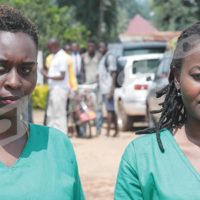Some countries use sign language interpreters at TV stationsso that deaf people can follow the news. That is not the case in Burundi.–By Yves Didier Irakoze

Fabien Hamisi and Patrick Ndihokubwayo, Representative of the National Association for the Deaf in Burundi ©Iwacu
Rwanda National TV has an interpreter who usessignlanguage to translate the news. The same is true in Uganda and Kenya. In Kenya they are most advanced, in that even some private TV stations use interpreters. “Some churches in Kenya, also have interpreters for the deaf”, says Koudra Shabani, interpreter for the National Association for the Deaf in Burundi.
The exact number of deaf people in Burundi is not known. The National Association for the Deaf in Burundi has over 500 members, of which more than 300 reside in Bujumbura. There are branches of the association in the countryside, in Gitega, Kayanza, Bubanza, Cibitoke and Muyinga.
According to Fabien Hamisi, Executive Director of the National Association, the main problem for deaf people in Burundi is access to information. They don’t know what is going intheir community, the country or around the world. The deaf communicate through sign language, but unfortunately, only a small number of deaf people in Burundi know how to use it. “It is hard for us to get any information. For instance, in 2015 there will be elections. But how will we know who to vote for”, Hamisi complains. He relates a personal story from the previous elections. “In 2010, during the presidential elections, I went to Kayanza province, where I met a friend who is also deaf. He saw a big number of people standing in a queue but he didn’t know what was going on. I tried to explain it to him. He thought that they were waiting for food, but I found someone who was wearing a t-shirt with Pierre Nkurunziza to show him what was going on.”
To improve the lives of deaf people, the nationalassociation organizes professional trainings in carpentry, automobile mechanics and sewing. It also providesa literacy program, explaining how to use signs for communicating, counting, reading and writing. There are informal classes in Mabayi commune, at Rugombo center, Mugina commune in Cibitoke province and at Kayanza and Bubanza provinces.“We plan to extend our activities to Rumonge commune in Bururi province, in the South of the country.”
The problem starts with the lack education for the deaf. The public schools are not equipped to provide adequate education to the deaf. “We need the government to set up this kind of program so that the deaf can benefit from the sameprivileges as others and also get access to the information”, Hamisi states.
Both Hamisi and Patrick Ndihokubwayo, Youth Representative of the Deaf, wish for sign language interpreters in schools and on television. The Association also lobbies with to the government, NGO’s and the international community. One of the issues at hand is the recognition of Burundi’s sign language. Hamisi explains the lack thereof on the stigmatization of the handicapped that still exists in Burundi.
Hamisi urges the government to respect the International Conventions related to Disabled people and take strong measures to people who still stigmatize the deaf and disabled people in general. He mentions that there are still parents who hide their children because of their disability or refuse to send them to school.He concludes by saying that if the government is not able to find someone who knows the sign language, the Association is more than willing to assist.


















 IWACU Open Data
IWACU Open Data

